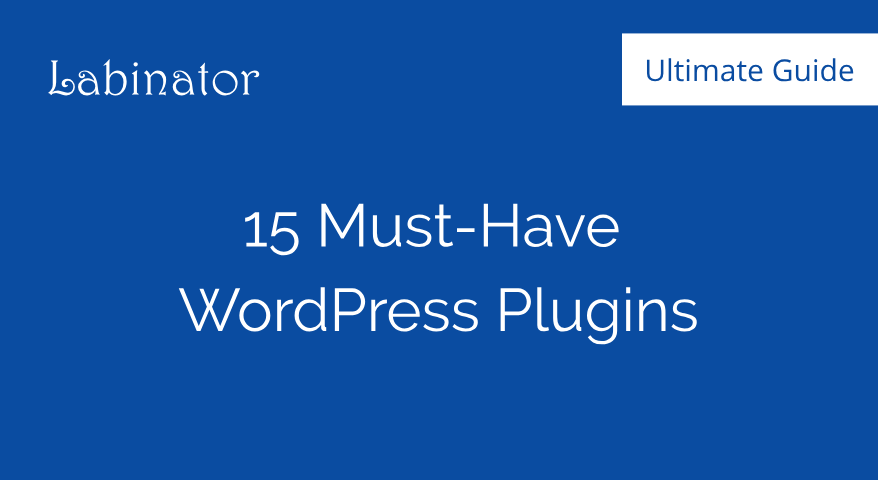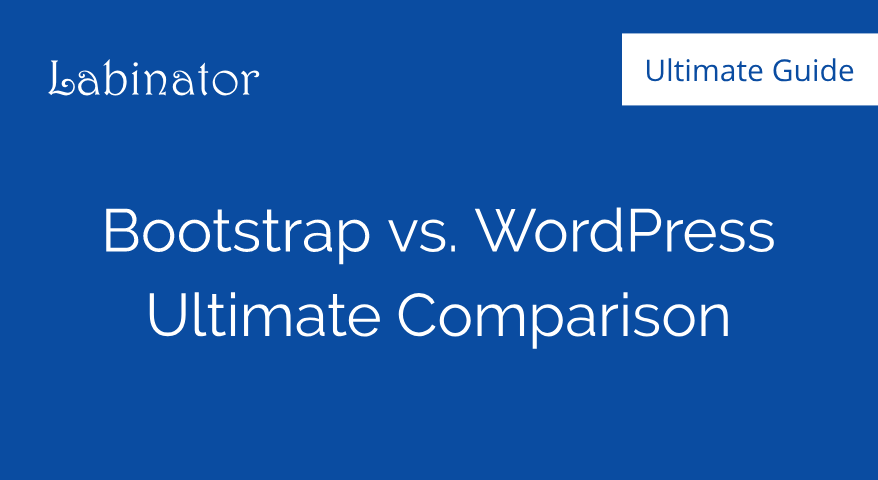Joomla vs WordPress Ultimate Comparison Guide (2024)
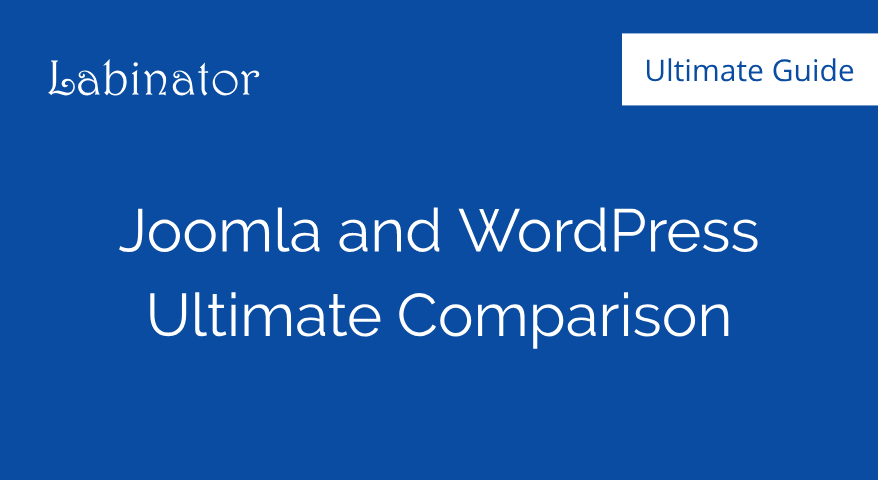
Find out which site-creation platform is the best for you with our ultimate guide that covers all of the pros and cons for Joomla and WordPress!
Joomla and WordPress
Choosing the right platform for your website is crucial for its success. Your platform determines much of what your website will capable of and how it will function. Every web-hosting platform out there has its own unique set of features, pros, and cons that come along with it. For this reason, choosing the right platform for you may be very hard.
If you know anything about site-creation platforms, then you should know that Joomla and WordPress are two of the most popular ones that people choose. They both are great platforms with unique suites of features, strengths, and weaknesses. This ultimate guide will have several sections that weigh the two platforms to see which is better.
Each category in this article will explain the individual pros and cons of each platform. Although they are very similar platforms, with this guide, you can see which platform is the right one for you. Before we can compare Joomla and WordPress, I should explain what they are and how they started.
About Joomla

Joomla was created by a fork of another open-source content management system called Mambo. After a controversy in the company, some of the co-founders created Joomla in 2005. This content management system evolves into the Joomla that we all know today. Joomla is now one of WordPress’s main competitors.
Joomla holds the second largest market share for CMS platforms right now, right behind WordPress. They are easily WordPress’s most renowned competition and one of the most popular choices. Joomla currently has a strong community with 700,000 active members. It is still one of the most reliable solutions for making a website.
Joomla can be very similar to WordPress as a platform, but they serve different purposes. WordPress should be primarily used for blogging and creating simple websites. Joomla is perfect for making community portals, forums, and websites with large numbers of users. Managing a large database of users is where Joomla excels.
Joomla comes in two different services/tools: Joomla CMS and Joomla Framework. Joomla CMS is their site-creation platform and service, while the Joomla Framework is a collection of libraries and tools for web services, coding in PHP, and software development. For this guide, we will only be talking about the Joomla CMS.
About WordPress
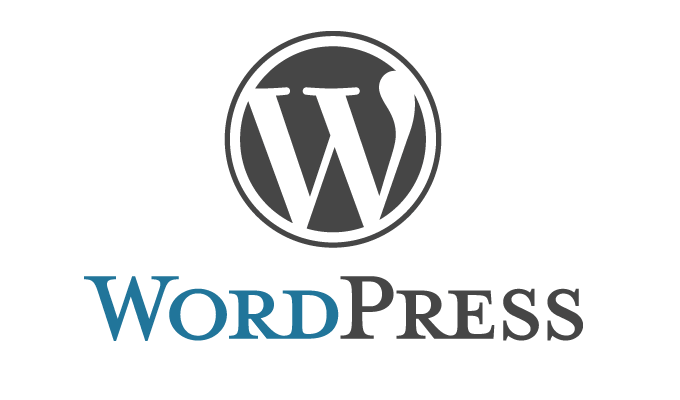
WordPress is also an open-source content management system that was created by Automattic in 2003. It is a tool that allows anyone to create their very own website without having to know a single line of code. WordPress has been around for years and has gone through countless versions.
It uses an open-source content management service that anyone can download. WordPress has made it so easy for someone to create and run their site that it powers nearly 40% of the websites on the internet.
It comes in two different versions that people can use; WordPress.org and WordPress.com. If you want to the differences between the two versions, then I highly recommend reading this article. For the sake of clarity, we will be only talking about WordPress.org.
Since WordPress has been around for years, it already has a library of thousands of plugins and themes for you to use. This pre-existing ecosystem of features makes WordPress perfect for every type of website.
With a vast sea of available plugins and themes bundled with one platform that gives you complete control you can see why WordPress is so popular. Versatility, accessibility, and customizability are what make WordPress great. Now that you know what Drupal and WordPress are, we can move on to seeing which one is right for you.
Ease-of-Use & Accessibility
The first category for our platform stand-off is going to be ease-of-use and accessibility. This section will test how accessible the platforms are and how easy it is to make a website using them. This section will also explain how easy it is to create content and build your site. It will also cover how well-built the UI of the platforms is.
When it comes to accessibility, Joomla is superior to WordPress in many ways. Firstly, Joomla has extensive support for multiple languages and right-to-left text. They have support for most languages without requiring extra plugins or add-ons. They also have more flexibility for all content types and formats for media.
The user-interface is where Joomla starts to run into some problems. The Joomla UI is average at serving its purpose but it is very lacking. The user-interface can be very hard to navigate and does not feature a well-made layout. The user-interface can be especially difficult for a beginner. However, this is not the only area where they are mediocre.
Joomla is also very lackluster when comparing page-builders. The Joomla page-builder is too basic and is missing many features that WordPress offers. The page-builder is also hard to navigate, though it offers a text editor similar to WordPress. If you want to replace the default page-builder, you can get a third-party page-builder.
Joomla’s Default Page Builder:
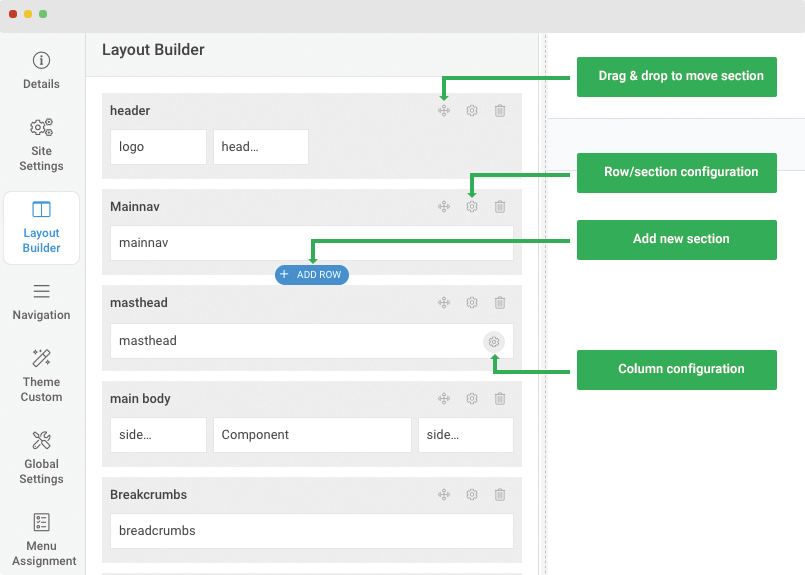
Joomla Third-Party Page-Builder:
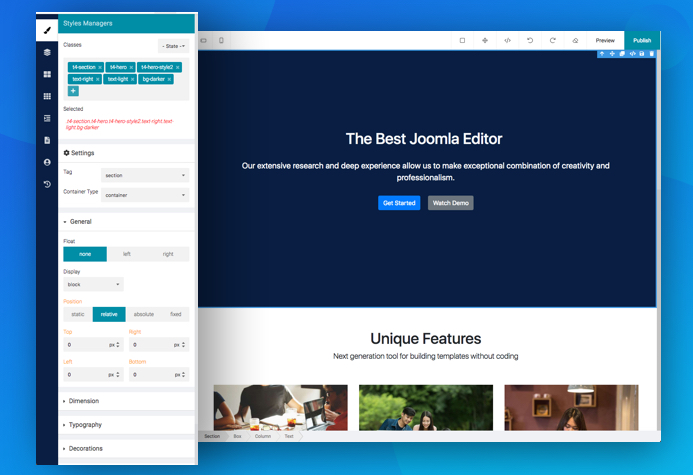
On the other hand, we have WordPress and accessibility. WordPress also a full suite of features and accessibility options. WordPress supports most languages, is translation-ready, and open-source. However, there is a catch to this because WordPress has less support for languages when you first install it.
You must also do extensive installation and maintenance before your website will be fully functional and ready. This installation is worse than Joomla because it takes more time and effort. Joomla’s automatic installer makes the installation process incredibly easy for you.
As far as the actual WordPress dashboard UI goes, it is well built but still needs some work. It has an easy-to-use sidebar that has everything you need in one place. However, there are some small issues, such as admin notices and trackbacks.
Moving onto the page-builder, WordPress has some reliable options. WordPress has a default page-builder called the “Gutenberg Editor”. This page builder is fast, though it lacks several features and can be intrusive at times. This issue, however, can be easily solved by using a third-party page-builder.
Gutenberg Editor:
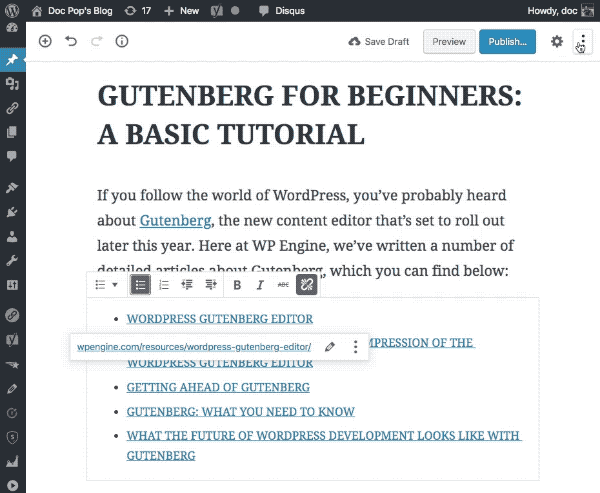
Since WordPress is open-source and supports plugins, you can pick between a lot of great page-builders. For this guide, we will be using the Elementor page-builder as our example, though there are countless other page-builders.
Elementor Page-Builder:
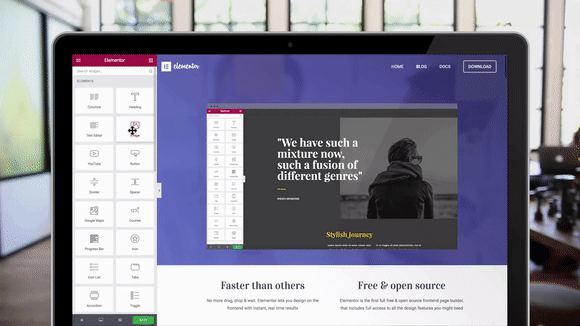
The Elementor Page-Builder has extensive customizability and a large feature list. Another great thing is that a lot of page-builders like Elementor are usually free. They also are much easier to edit and use than the Joomla page builder.
Overall, I would have to give the point to WordPress. WordPress offers more features on their page-builder and it is easier to use. Joomla has more accessibility features, but it takes a lot of time to get used to and its page-builder is lackluster. The third-party page-builders for WordPress are much better than Joomla’s.
Performance & Security
Performance, maintenance, SEO, and security are four crucial elements to running any website. People expect your website to load in seconds. Maintenance determines how much care your site will need. Site security is vital for your site because security breaches will endanger user data and slow down your site. These features are a necessity for all websites.
Similar to WordPress, Joomla is a self-hosted and handled platform. The performance and optimization depend on what you do with your website. Joomla offers a very good framework with great performance, but it is up to you to maintain and improve those speeds. Your optimization and hosting provider determines your performance.
The maintenance that Joomla makes you undergo is also similar to WordPress. This section is also looking pretty even because both platforms offer similar performance stats and maintenance requirements. Joomla offers ready-to-go SSL certification, while WordPress has automatic updating tools. Both platforms are almost equal in maintenance.
The SEO features on Joomla are slightly better than those on WordPress. Joomla comes with built-in SEO tools like meta-data editing and some tools for gaining insight. WordPress requires you to install an SEO plugin to get the most out of its SEO. There are fewer built-in tools and services that WordPress offers.
The security is slightly worse than that of WordPress in this section. They both offer great security, but WordPress has automatic updates and built-in security features. While Joomla is better for SEO, WordPress comes with more features to secure your website. Joomla’s security will also take some more time to set up.
WordPress performance requires a reliable and fast host, like Host Armada, to get the full potential out of your site. There are also countless plugins, CDNs, caching plugins, and other things you can install/tweak to increase performance. On the bright side, the overall performance of the WordPress platform is exceptional.
Having to maintain a site yourself is also a double-edged sword. You will have full control and customization on your site, but you are responsible for everything on your site and how you manage it. Unlike Joomla, have to deal without help from included tools. Thankfully, WordPress gives you automatic updates for the best optimization.
As far as maintenance is concerned, WordPress can be a hassle. You have to consistently clean, optimize, and manage your site to ensure that you’re getting the most out of it. If you want an easy solution for WordPress maintenance, then Labinator’s web-experts can auto-pilot your site for you!
As far as SEO is concerned, WordPress is a little worse than Joomla. SEO requires less time and tweaking on WordPress, and it does not come with built-in SEO tools. With WordPress, you change the main elements of your website’s SEO with ease. The only problem is that it requires the right plugins and configuration to get started.
For security, WordPress does a much better job than Joomla. Their site security features are not perfect but better than most platforms are currently available. As long as you keep your account secure and maintain your site well, you will not get a breach. If you have a security breach, then you and your host have to deal with it.
Overall, I would have to announce a tie between WordPress and Joomla for this section. Both platforms give you exceptional performance and security with very minimal benefits for each service. In the end, they both cancel out their pros and cons for this section. They each have their strengths and weaknesses.
Restrictions & Monetization
Some other vital things to consider if you operate a website are restrictions, monetization, and growth potential. These elements will be very critical in the long-term and business side of things. This part of the guide will cover the implications of SEO, monetization, rules, ownership of content, and any restrictions/limitations.
Joomla and WordPress will share several similarities in this section, like in previous sections. They both follow the same guidelines for restrictions and let you monetize in similar ways. The only category where they differ vastly is in their growth potential. As long as you do not do something illegal, you will be fine using either platform.
The Joomla monetization features are very lax but expansive. They allow you to make money however you want, ranging from advertisements and sponsors to full stores and donations. They also let you create eCommerce stores, memberships, and revenue streams on your website. As long as it is legal, you can sell it on Joomla.
The growth potential for Joomla is where it sets itself different from WordPress. They offer a more diverse environment for creating your website. This environment includes an extendable framework, a well-built database, user management, and incredible customizability. With their extensive user management, you can easily expand your site.
Moving onto WordPress, a lot of similarities with Joomla are present. WordPress is mainly different because of the regulations and monetization options available. These attributes allow WordPress to have more flexibility and control. A website created on WordPress will require less work but will have fewer features in some areas.
Secondly, they give you full control over your website. You can edit and tweak your site in any way you want. Almost everything in WordPress can be changed or removed. They also let you directly edit the code of your website and change SEO. You get access to much more on your site with WordPress. WordPress’s growth potential is exceptional.
Lastly, WordPress offers more eCommerce potential than Joomla because of more monetization capabilities. WordPress provides plugins like WooCommerce that have much more eCommerce functionality than Joomla. These allow you to create a fully customizable store and add things like memberships easily.
Overall, I would have to give this point to Joomla. Although WordPress has better eCommerce plugins and slightly fewer restrictions, Joomla is better. Joomla has more extensive capability for large databases of users and content. WordPress plugins may be able to compete, but Joomla offers everything right out of the box.
Features & Design
One of the last sets of things we will be covering is customizability, features, and design. These things are crucial for both adding functionality and designing a good website. This section will cover the functionality, site designing features, plugins, and aesthetic options that Joomla and WordPress offer.
Since WordPress and Joomla are both open-source and self-hosted, you will not see many differences in this section. Both platforms give an extensive degree of control that allows you to tweak and add anything to your website. Their customizability options are near endless, though there are some key differences.
Joomla provides an immense amount of customization for your database, users, content types, and user management. Their complex systems are slightly harder to understand, but they offer a much higher degree of freedom. Joomla also gives you free control over your content through their more extensive content types.
However, the next section is one where Joomla fails to compete with WordPress. Design features are very well-built into Joomla, though they require more polish and depth. Joomla has less support for themes, plugins, page-builders, and design customization. This support is just nothing when compared to the features that WordPress boasts.
When you are creating a site on Joomla, design, and layout are more limited than WordPress. The themes that Joomla offers are very customizable but cannot compete. The page-builders are harder to use due to the nature of the platform. This unintuitiveness can make working with Joomla is more difficult than WordPress.

As mentioned before, WordPress is also open-source and offers great flexibility. If you can code it, you can add it to a WordPress site. This factor ties into the ridiculous number of features that WordPress offers. Plugins and the pre-existing WordPress settings let you add anything without editing the code.
WordPress features tens of thousands of plugins that can do anything from removing a specific notification to overhauling everything about your site. Plugins and themes are the bread and butter of WordPress. Since WordPress is open-source, the plugins can achieve anything imaginable.
WordPress offers so much in design that it can get overwhelming. Although creating a site is more difficult with WordPress, it has thousands of plugins to help you. WordPress also has thousands of stunning themes that ready out of the box. WordPress themes can range from full overhauls to frameworks you can build on, like NanoSpace.
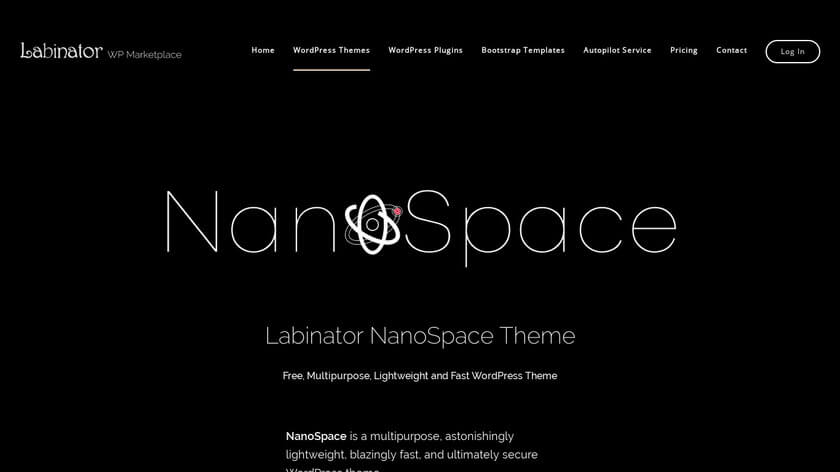
The design options are extensive and flexible. The page-builders and customizability features let you change everything about the website. Joomla has excellent aesthetic and design options, but WordPress has more. WordPress also allows you to do everything without having to tweak very much or code.
In conclusion, I believe that Joomla offers immense customizability and flexible features. However, WordPress has a much simpler approach and offers more customization and design. WordPress also gives you more plugins, themes, tools, and services to use. Thus, WordPress should win the point for this section.
Pricing
Pricing can be a deal maker or breaker for most people looking for a platform. You need a platform that is cost-effective and provides flexible pricing options. Since pricing can vary when creating a website, we will only focus on the primary things you need. Anything extra will be up to personal preference.
Pricing for both of these platforms will vary because they both have variable pricing. You do not pay for Joomla and WordPress themselves, but the things that go with them. You have to pay for the domain, hosting provider, plugins, themes, and other features. This reason is why pricing can range from $20 to $1000 every month.
You will have to pay for a hosting provider monthly plan and a one-time fee for a domain. Then you can download either WordPress or Joomla for free. I would once again recommend Host Armada if you want a place to start. Now it is up to you to decide on what you want to buy for your website.
These can range from plugins and themes to professional tools and subscription services. Plugins and themes are the main things you can buy, but things like CDNs and services are also useful. All of these products can range in price. If you want a place to buy the best WordPress products and services, I would highly recommend Labinator.
In conclusion, this section is a tie because of how similar the platforms are. It is completely up to the other factors and personal preference when it comes to the costs of these websites. WordPress offers fewer tools and services when you initially get it. Joomla has a much smaller and less impressive library of products.
Pros & Cons of Joomla
Pros of Joomla:
- There are many custom content types and settings.
- There have better user management tools.
- Languages are built-in and are easy to setup.
- There are fewer technical issues and bugs.
- User systems can handle much more data.
Cons of Joomla:
- It offers less overall customization and flexibility.
- The page-builders do not offer as many features.
- There are much fewer plugins and themes.
- The design options do not work as well.
- The UI is not as intuitive and simple.
Pros & Cons of WordPress
Pros of WordPress:
- There is a library of thousands of plugins and themes.
- There are very few restrictions and limitations.
- It is much easier to use and more intuitive.
- The page-builders and UI are both much better.
- You can add a lot of functionality and extra features.
Cons of WordPress:
- There are fewer customization features and settings.
- It cannot handle large databases as well.
- Your website can experience more technical issues.
- It offers fewer SEO features and settings.
- It offers much worse security and performance.
Final Verdict
In conclusion, there isn’t a right or wrong answer for choosing between Joomla and WordPress. Joomla and WordPress both have individual strengths and weaknesses that make them different. It comes down to what type of site you want. They are better at separate things, though I recommend WordPress over Joomla for most people.
Joomla excels at creating online platforms, community websites, and forums. Their content type flexibility and user management systems make it easy to handle large databases of profiles/users. If you want to make a social media platform then Joomla will also be an excellent choice. It is harder to use but can be better if used for the right purpose.
WordPress is better for blogs and most websites because of its degree of control, flexibility, and customizability. WordPress is usually better for creating blogs and stores. It offers more monetization choices, features, control, and more functionality. It may have less user management and functionality than Joomla, but it is much easier to use.
The Best Website For WordPress
In conclusion, there isn’t a right or wrong answer for choosing between Joomla and WordPress. Joomla and WordPress both have individual strengths and weaknesses that make them different. It comes down to what type of site you want. They are better at separate things, though I recommend WordPress over Joomla for most people.
Joomla excels at creating online platforms, community websites, and forums. Their content type flexibility and user management systems make it easy to handle large databases of profiles/users. If you want to make a social media platform then Joomla will also be an excellent choice. It is harder to use but can be better if used for the right purpose.
WordPress is better for blogs and most websites because of its degree of control, flexibility, and customizability. WordPress is usually better for creating blogs and stores. It offers more monetization choices, features, control, and more functionality. It may have less user management and functionality than Joomla, but it is much easier to use.
WordPress Guides
Best Collection Of WordPress Guides & Checklists
Our complete and latest collection of WordPress guides and resources that cover everything you need to get the most out of your WordPress website.
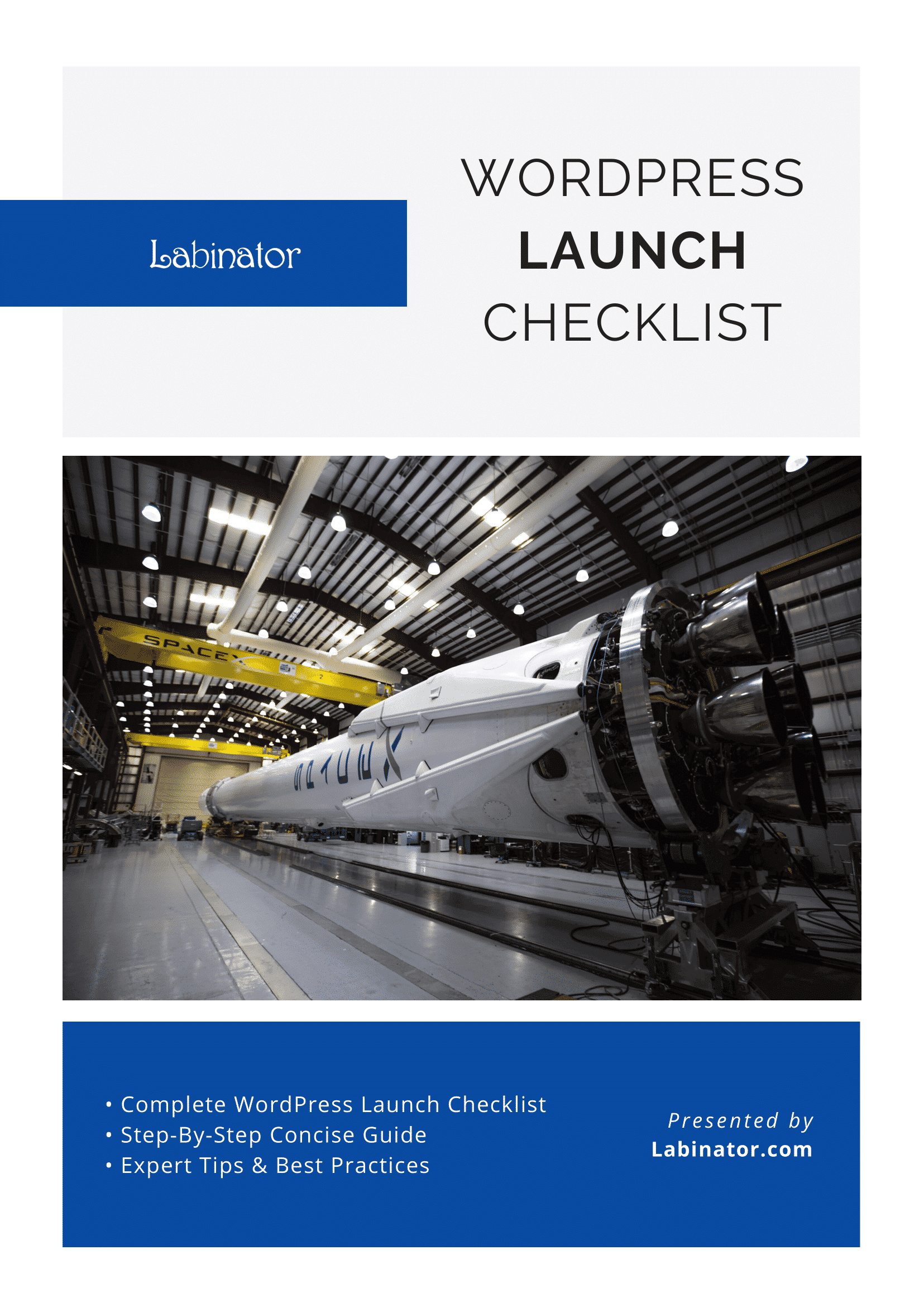
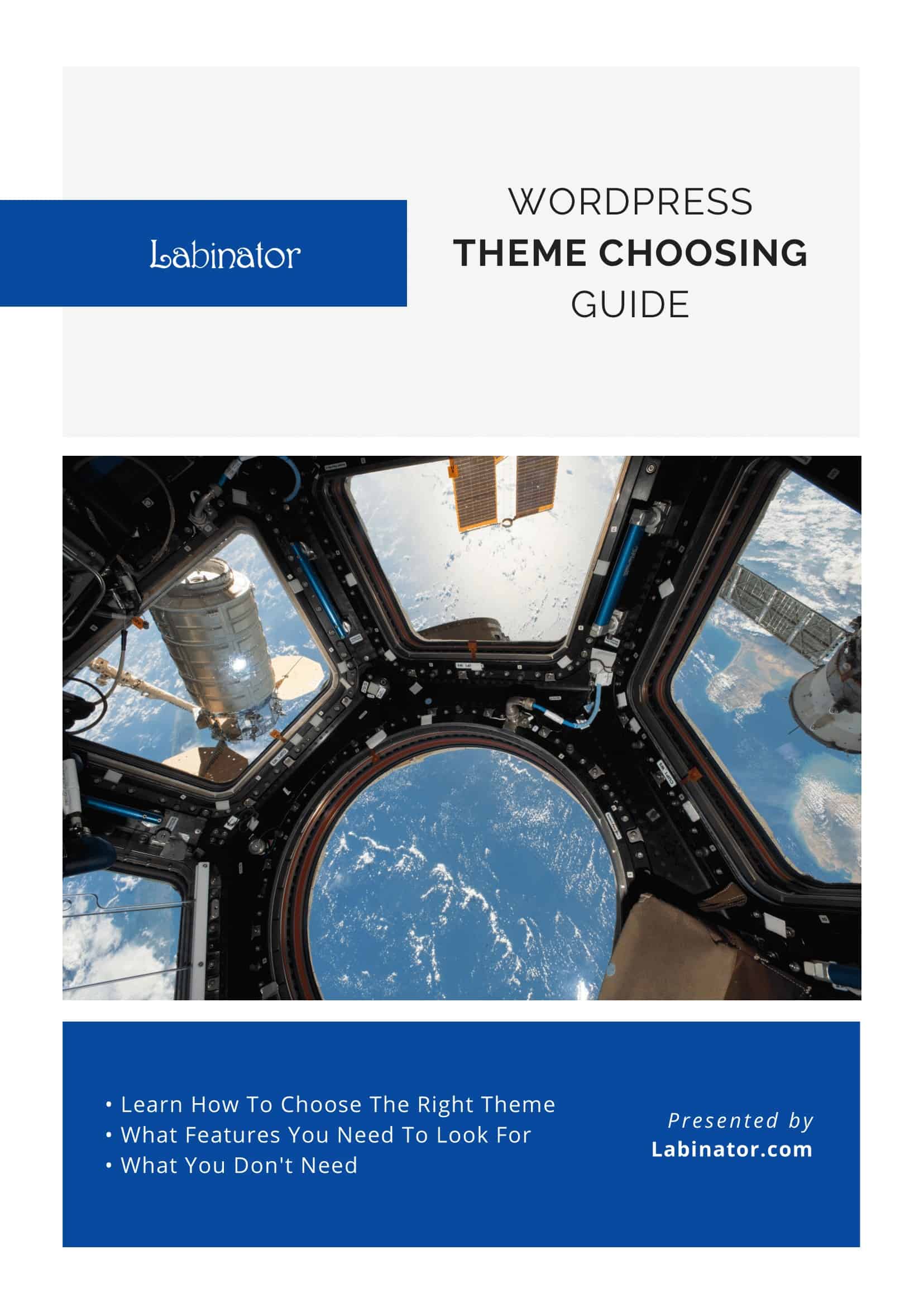

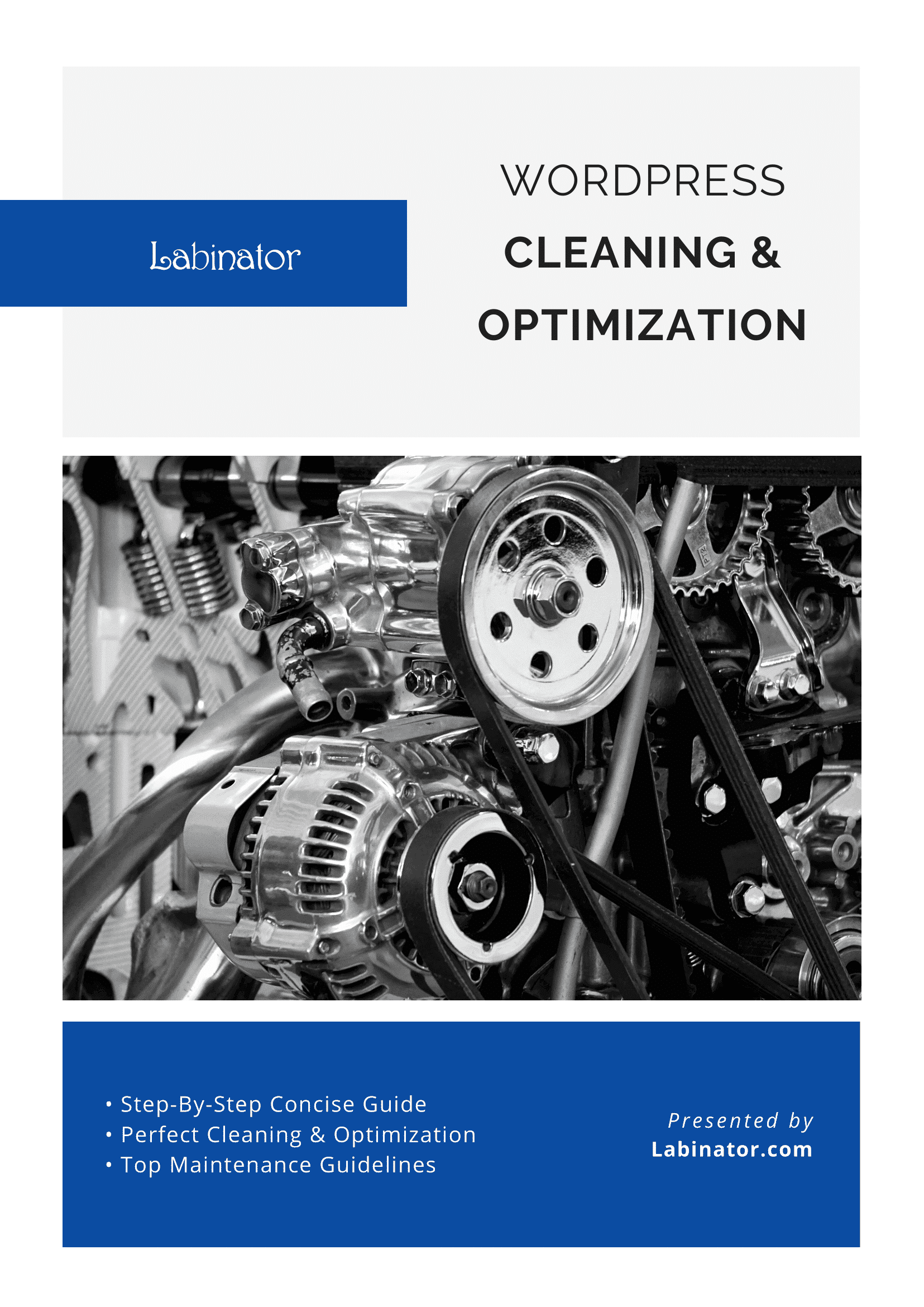
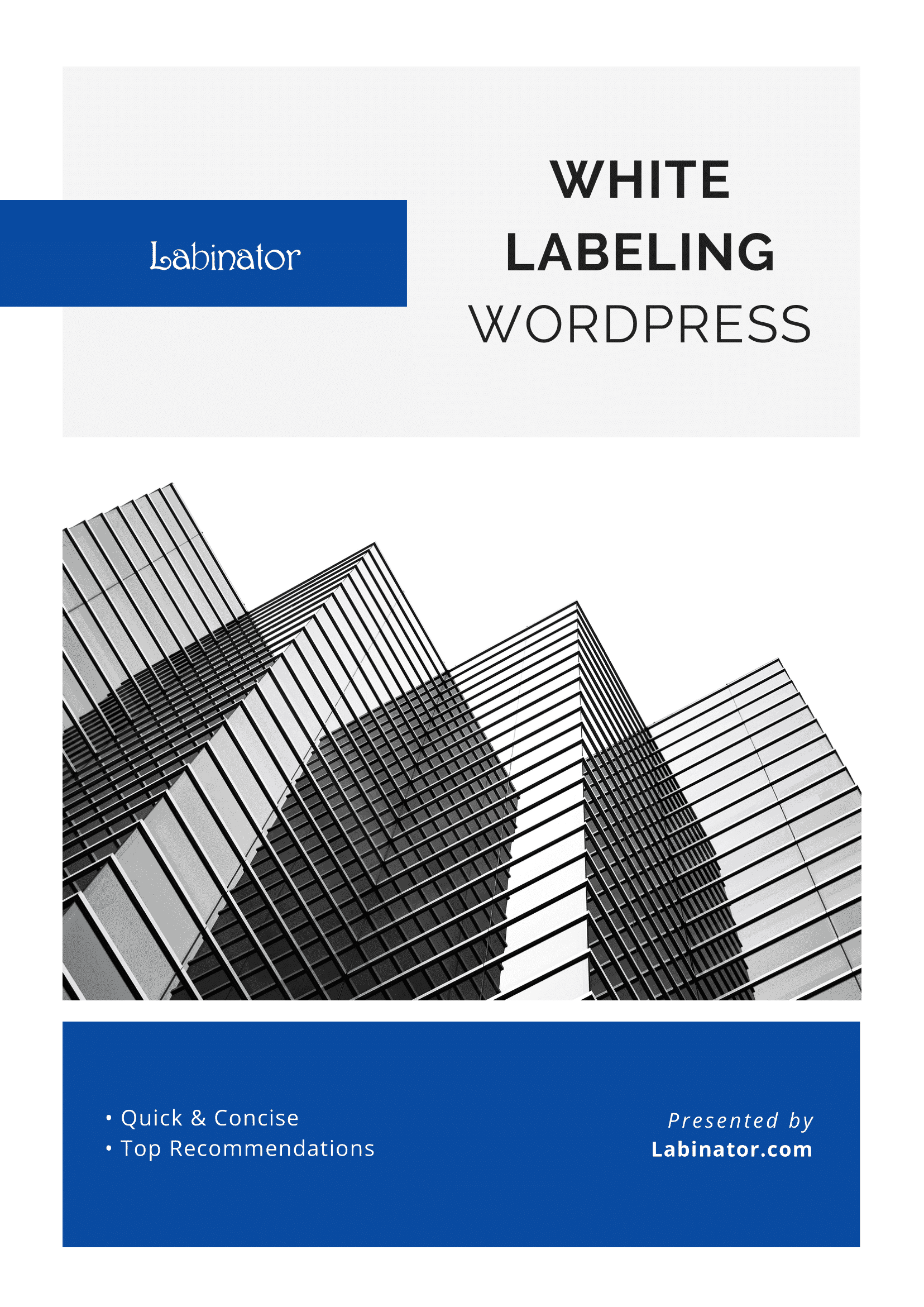
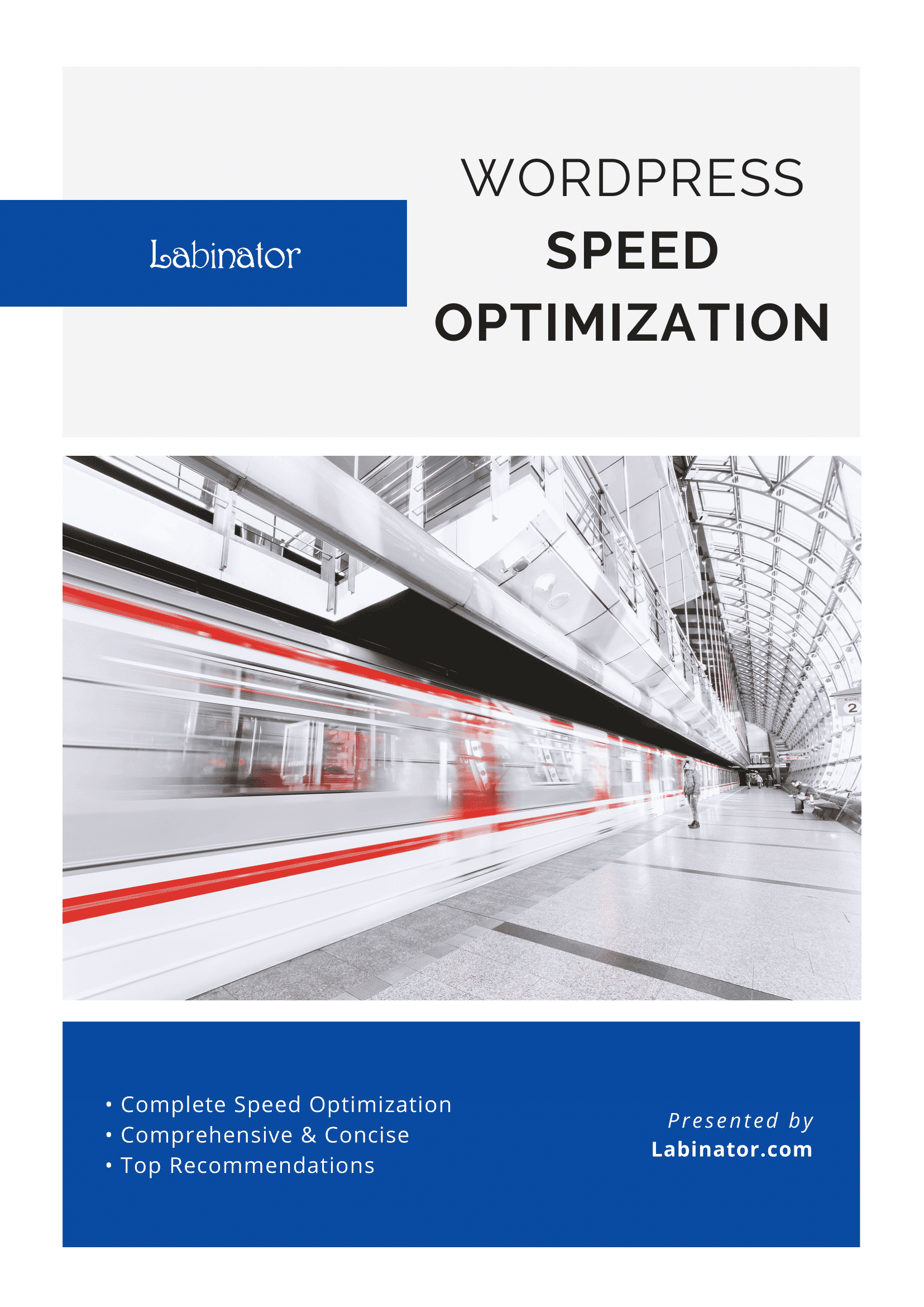
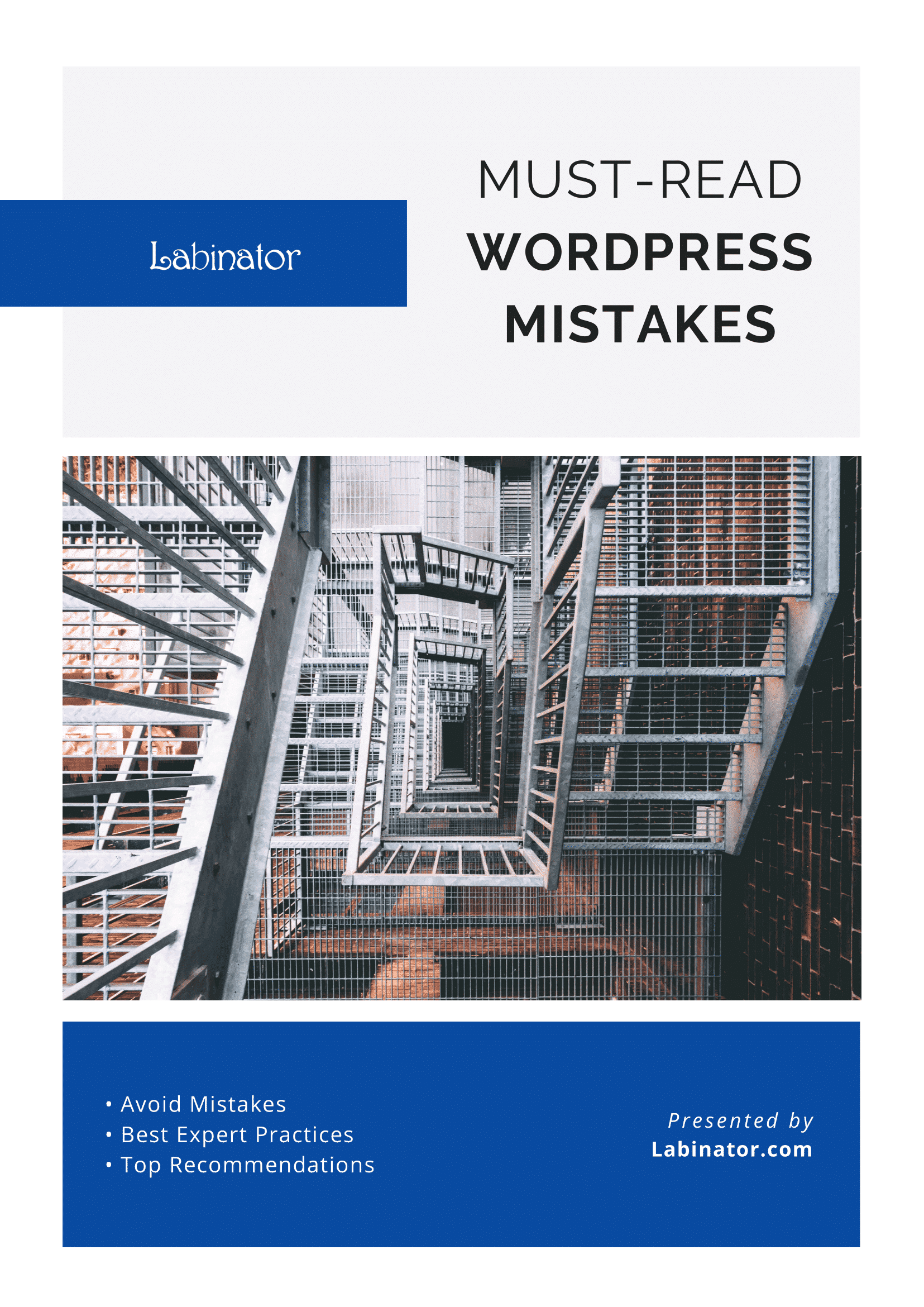
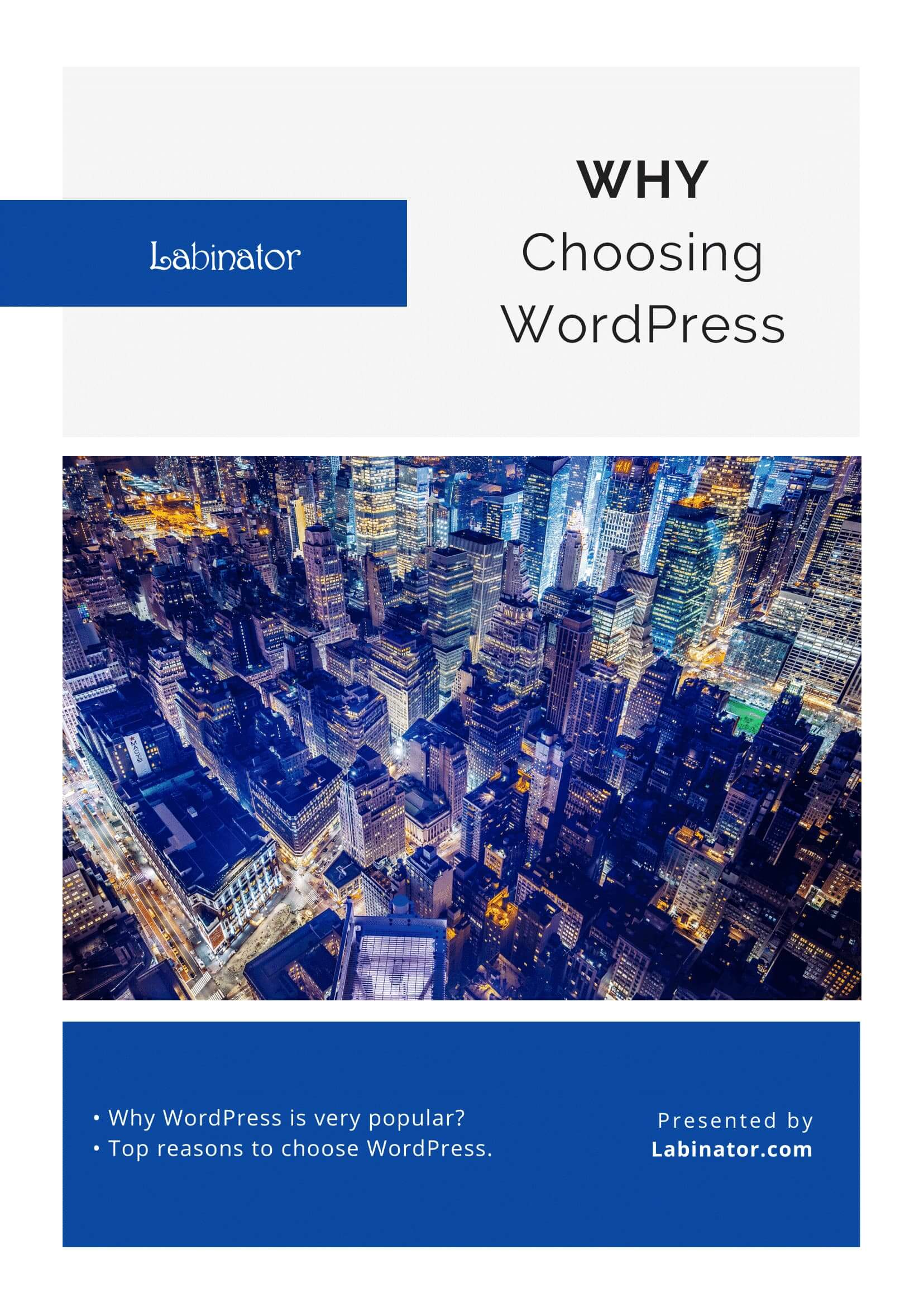
Download Them All!
All of our guides will be sent to your inbox
